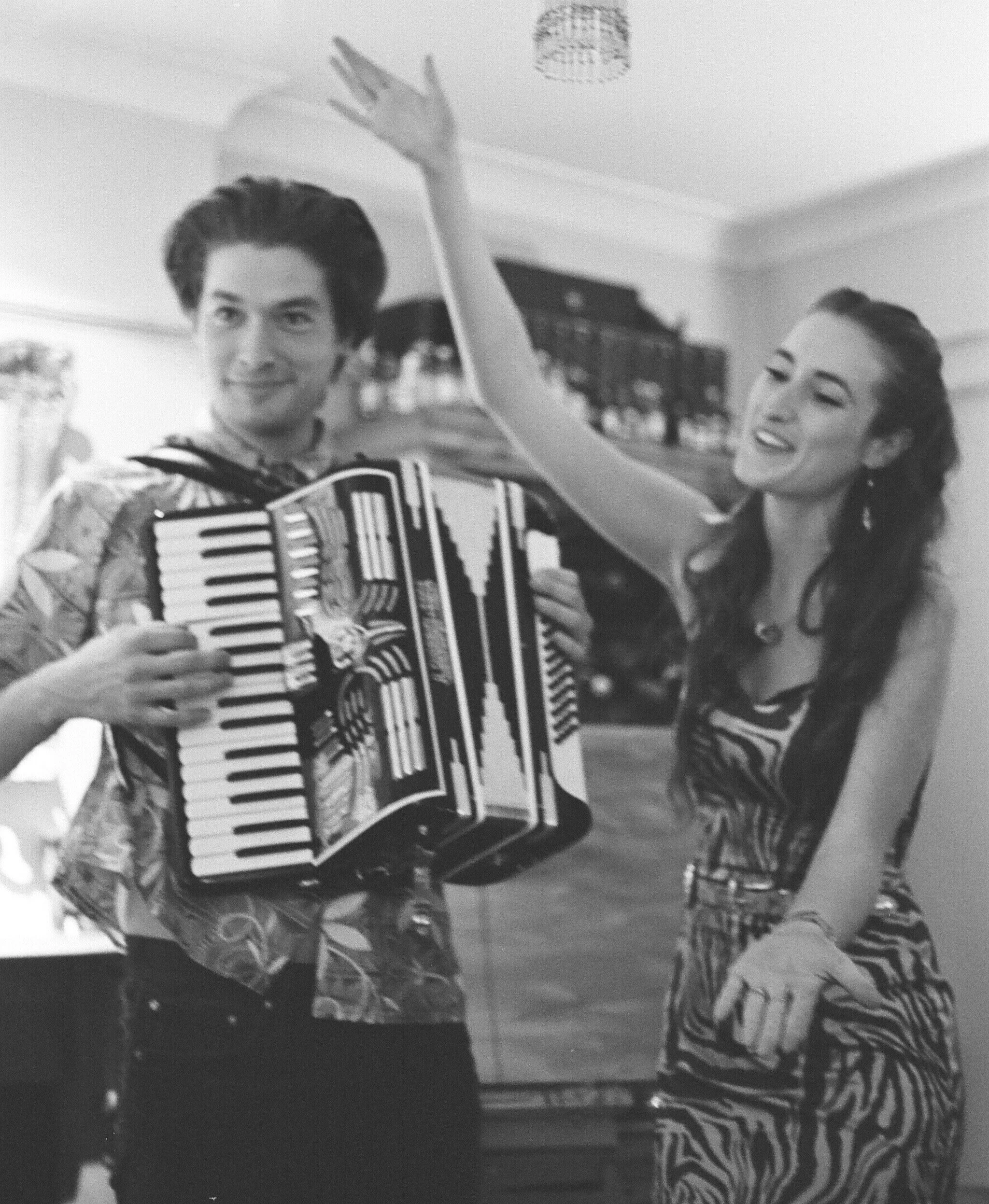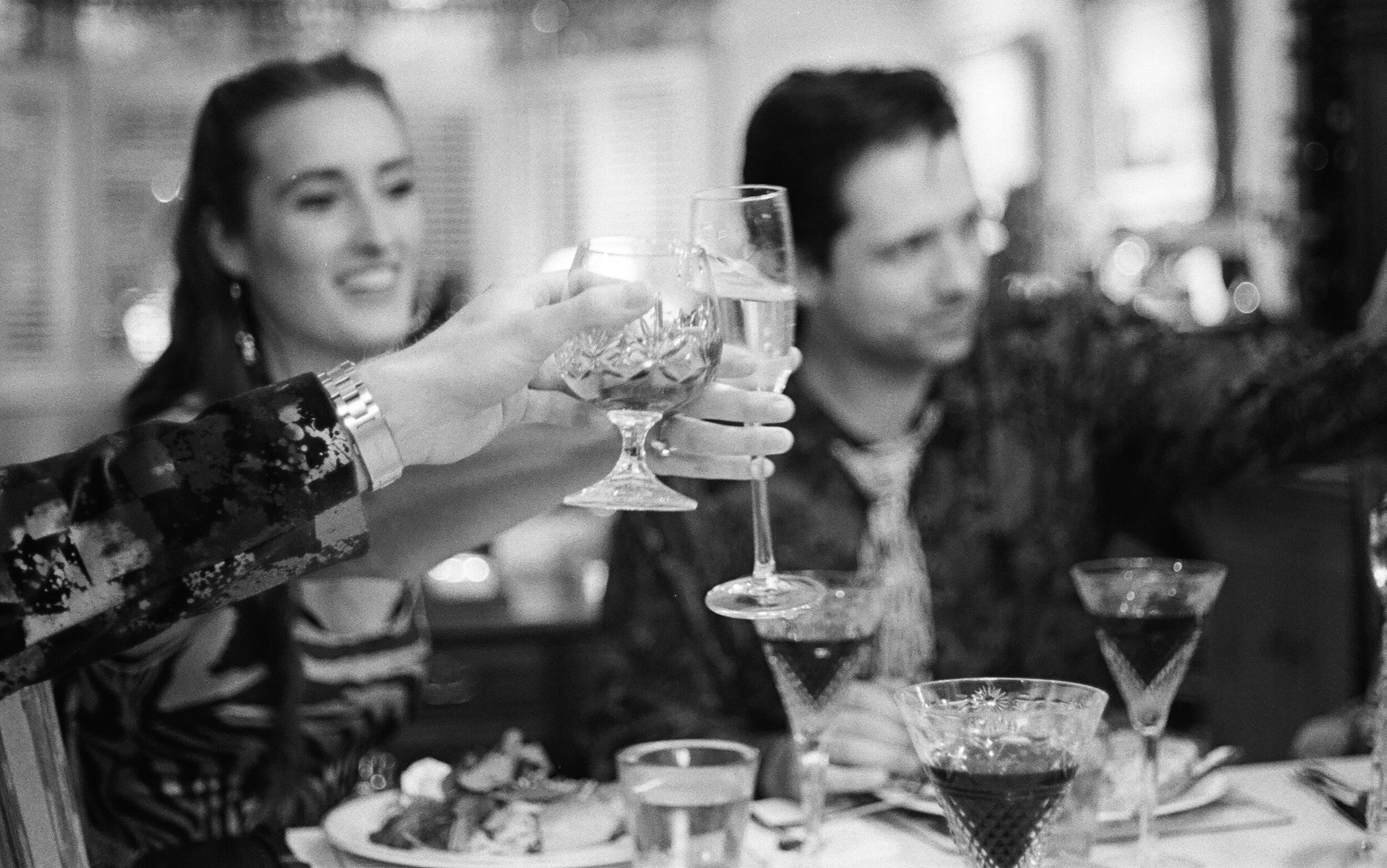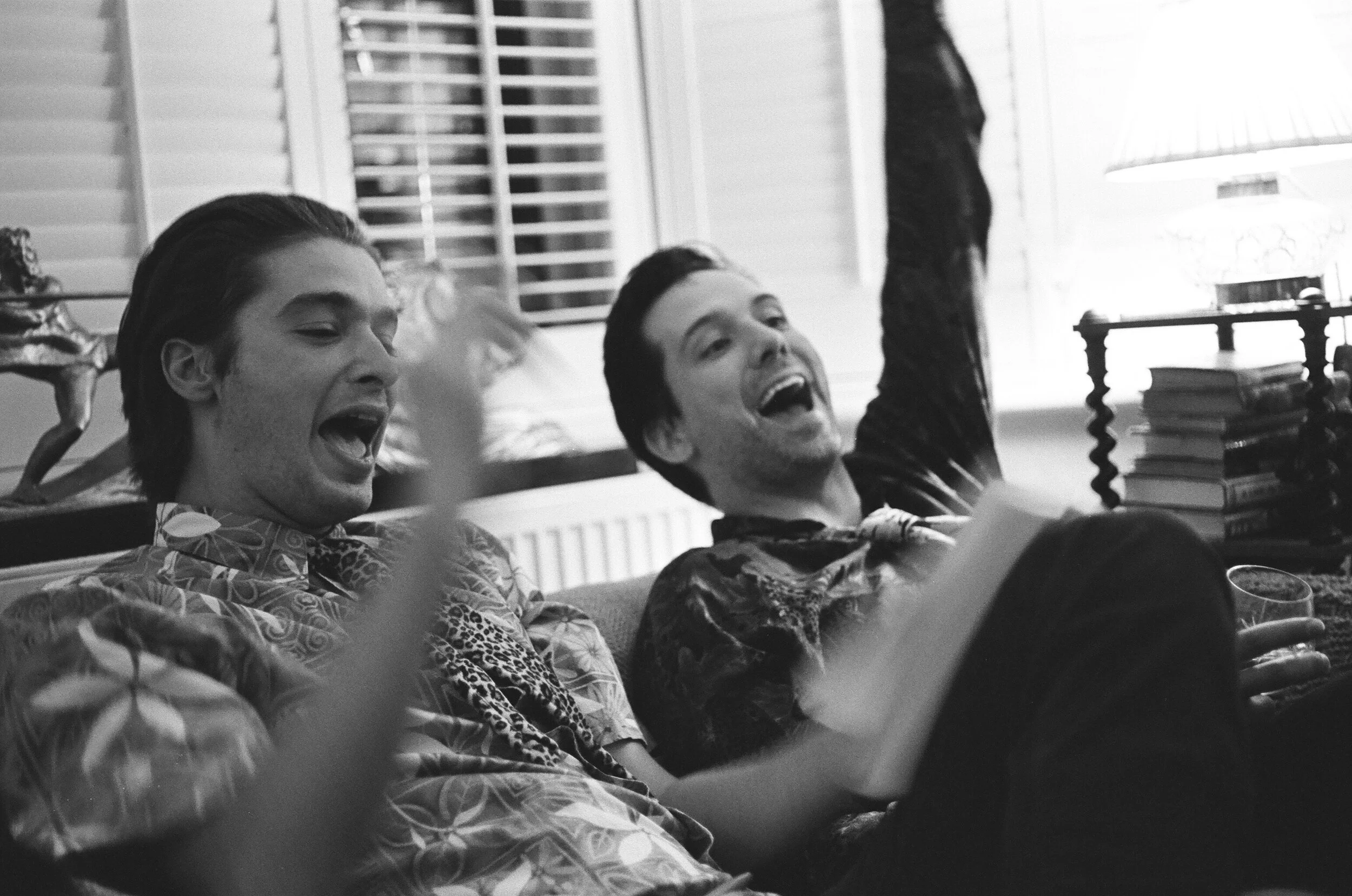Nicholas Higgins 17/06/2020
Till Dinner do us Part
‘Something sinister lurks in men who avoid wine, games, the company of lovely women, and dinner time conversation, such people are wither gravely ill or secretly detest everyone around them’, M. Bulgakov, Master and Margarita
The dinner party, that elegant trademark of yore, is in its last death throes. Rare is it to dress up, hob-nob, sip and nibble with small groups of friends amidst one’s own living room.
Perhaps we can blame social media: the well edited version of food and life on Instagram has lead to perception of heightened expectations, and the feeling that if you can’t make a party perfect, you shouldn’t throw one at all. Or maybe it’s the hectic, frenzied pace of modernity. All that prepping, cooking and clearing sounds too much like hard work. And the thought of people waltzing round your own home, your castle, your inner sanctum and retreat…tosh!
Sweat pants, Deliveroo and Netflix, by contrast, are joyously easy. No expectations, no formalities and protocols, no culinary challenges, no droning conversations. Just pure, unadulterated consumption. In any case, what was ever wrong with a restaurant? No lukewarm lasagne or lingering guests here.
For those that might still live by these creeds, allow me to impart some paltry wisdom.
At a dinner party there’s no time wasted looking at a menu, ordering, or deciding on wines. There’s no awkward moment when the check arrives, and without interruptions from waiters and strangers sitting within earshot, the evening is free to take on its very own vivacious life. The all too public restaurant doesn’t allow for impromtu party tricks, spontaneous clinking of glasses for soaring speeches, poetry recitals, cig intermissions, or such like. Our family quarantine dinner parties tend to be interspersed with a smattering of activities, from quiz’s to live musical performances to painting competitions. Coupled with mild alcoholic lubrication (‘drink loosens the tongue and opens the heart wide’), they’re always memorable evenings. They’re multilayered, textured, spontaneous. Restaurants simply don’t allow for this kind of scope.
The fact is that dinner parties aren’t really about the food, the wine or the cheese. These are just the props - the conduits for funny and real and meaningful conversation. Something increasingly engendered in our tech filled world; many preferring to hide behind screens and editable emails and texts than engage in open ended discussion. Conversation is beautiful and powerful, you learn things about yourself, others, the world, that would otherwise have remained hidden. Even if you are sat next to a dullard who spends the evening banging on about his stamp collection (true story). The great enlightenment philosopher Immanuel Kant called these kind of conversations a ‘veritable medicine of the mind’. I was confronted with new and different ideas to my own, and his perspective on stamps made me think about them in ways I hadn’t before.
But conversation is about more than intellectual stimulation, it’s the audible expression of fellowship between like minds. And is not connectedness, intimacy, communion with other people deep down what we all truly desire? As Hellen Keller said, ‘I would rather walk with a friend in the dark, than alone in the light’. Life would be an ugly thing without friends. They teach, inspire, encourage, support us in our mortal journeys, they remind us that no man in an island unto himself. A dinner party is the sanctuary for friendship, the microcosm where bonds between man and man are initiated and strengthened through lively conversation.
Technology most definitely serves us, but no matter how many new apps or devices or news ways of connecting through social media - there is no substitute for this kind of old fashioned, face-to-face interaction. As Kant put it, ‘the little dinner party must not try to supply physical satisfaction - which everyone can find for himself - but social enjoyment for which dinner must appear only as vehicle’. Dinner parties bring people together, physically, emotionally, intellectually, in a way that can’t be replicated in a virtual sense.
Inviting friends into your home is also a pretty exceptional way of connecting host with guest. It is the true metaphorical expression of openness; of having an ‘open door’ and saying come in, eat, drink and break bread with me. Compared to an impersonal restaurant, home is your most private, personality infused space. This makes the whole act of dinner partying a lot more vulnerable, a load more intimate and tonnes more authentic than any Michelin starred establishment. Even if the salmon is overcooked.
There’s also the fact that the host becomes a giver - of food, of hospitality, of an enjoyable experience. It’s a service rendered to those you value most. Such generosity not only cements relationships, research shows that it makes you happier, reduces stress and anxiety, and just plain feels great.
If we have time to cook for ourselves, take a photo of what we’ve made, and then broadcast it to all of our ‘friends’, then we have time to invite a few of them to eat with us. A dinner party after all, only requires a couple people, some food, a table, some conversation, at a home. Yet how much more it is than the sum of its parts. These a moments of ‘civilised bliss’. They’re occasions that elevate life beyond the ordinary and mundane. Indeed, it’s here that we pause the noise of everyday life, shut the laptop, scrap the to do list, quit moaning about our miserable lives, and briefly glimpse the stuff that makes life worth living.


